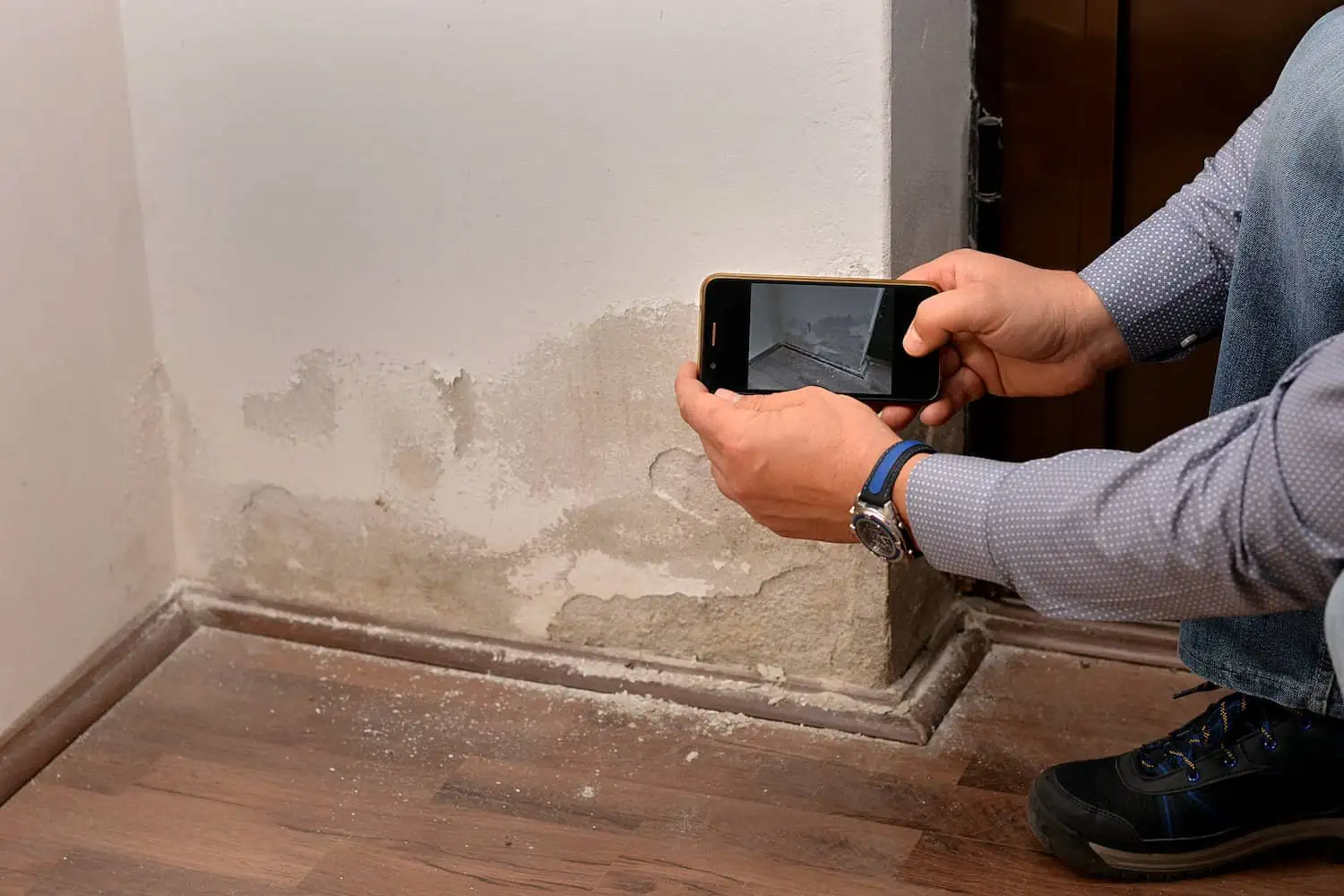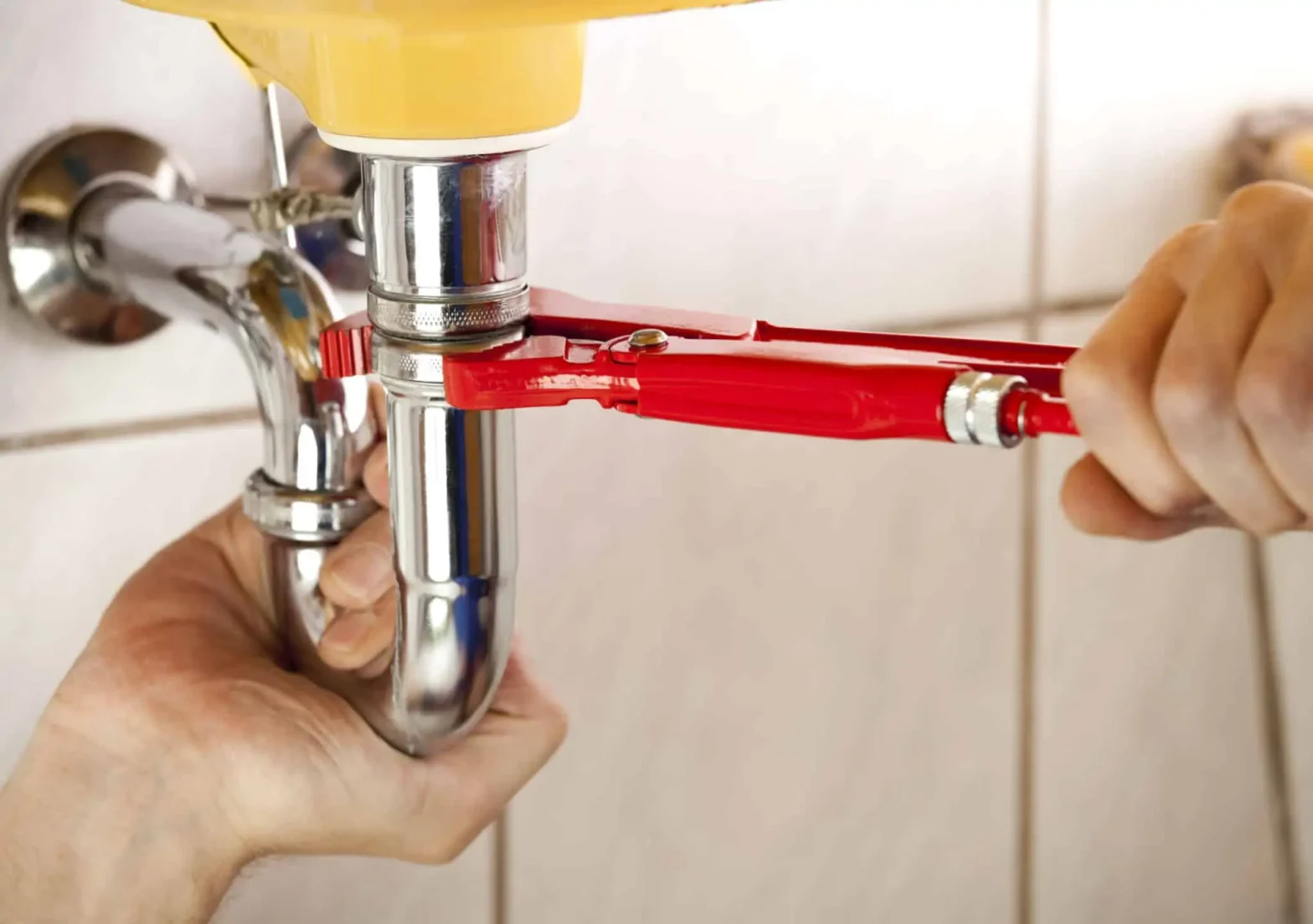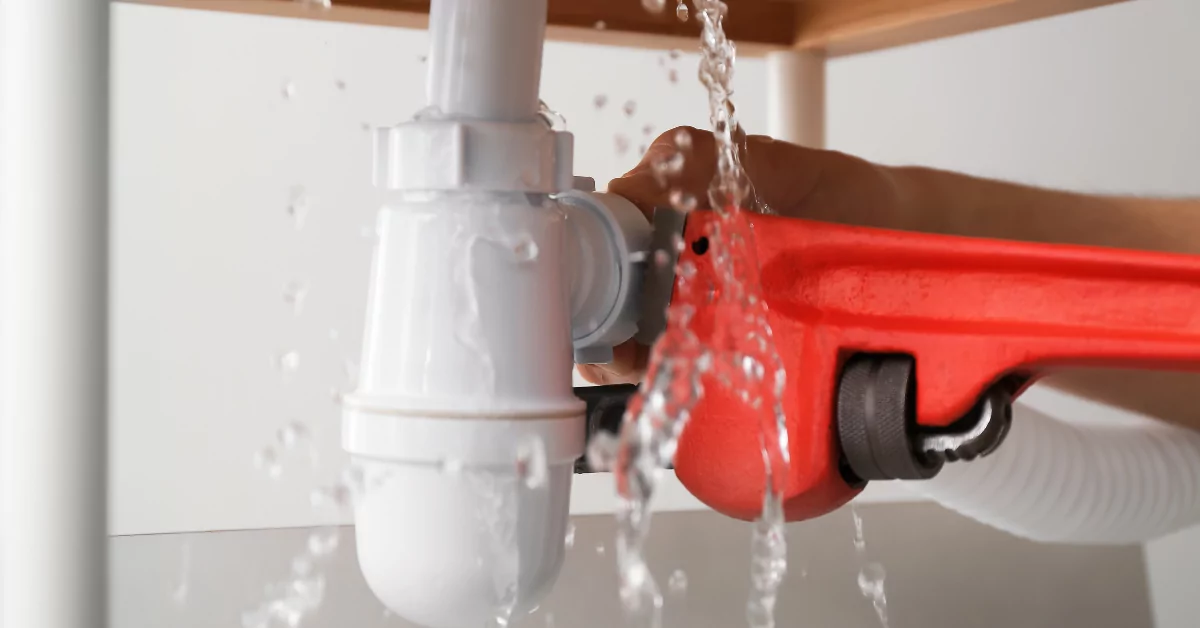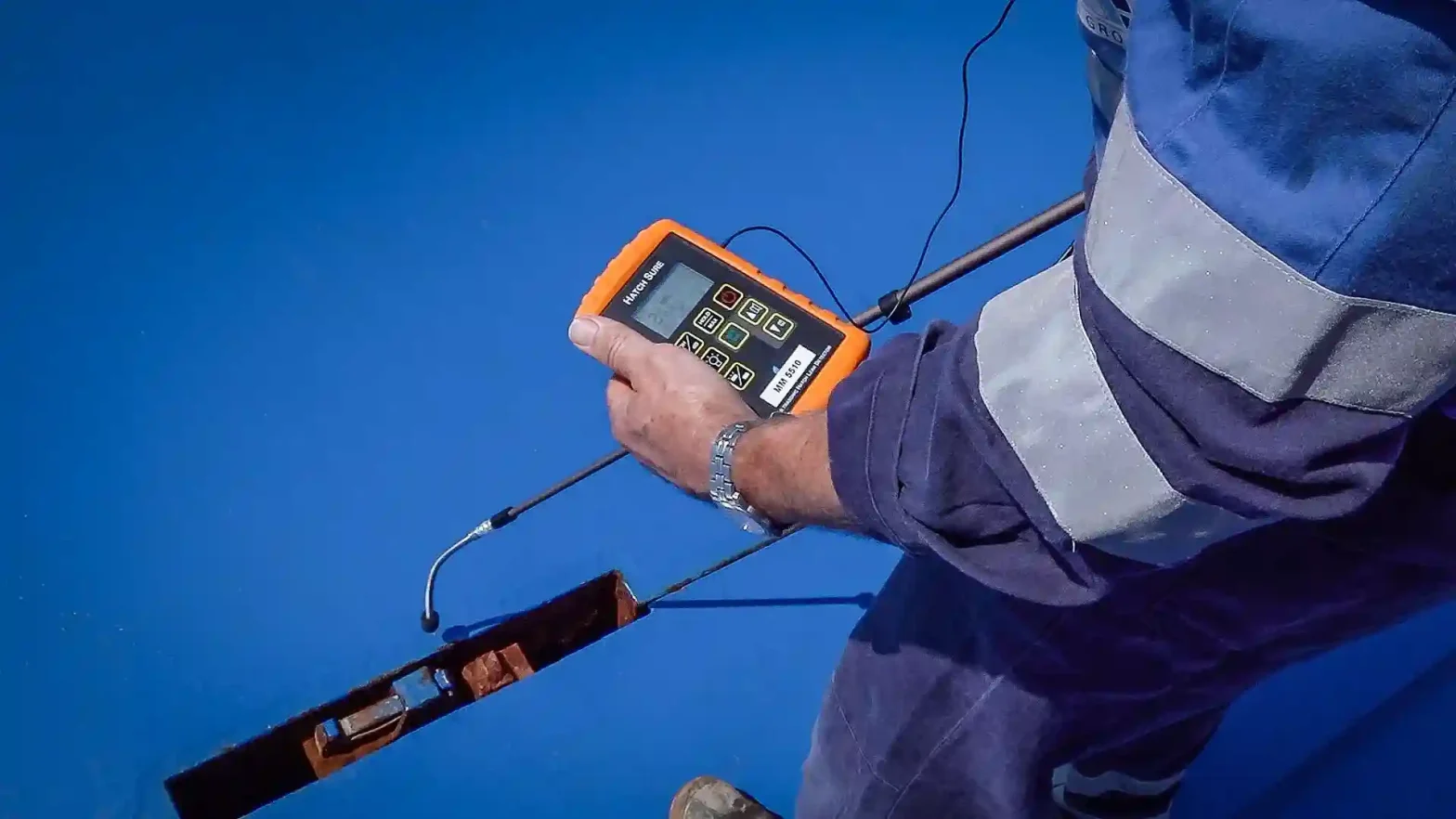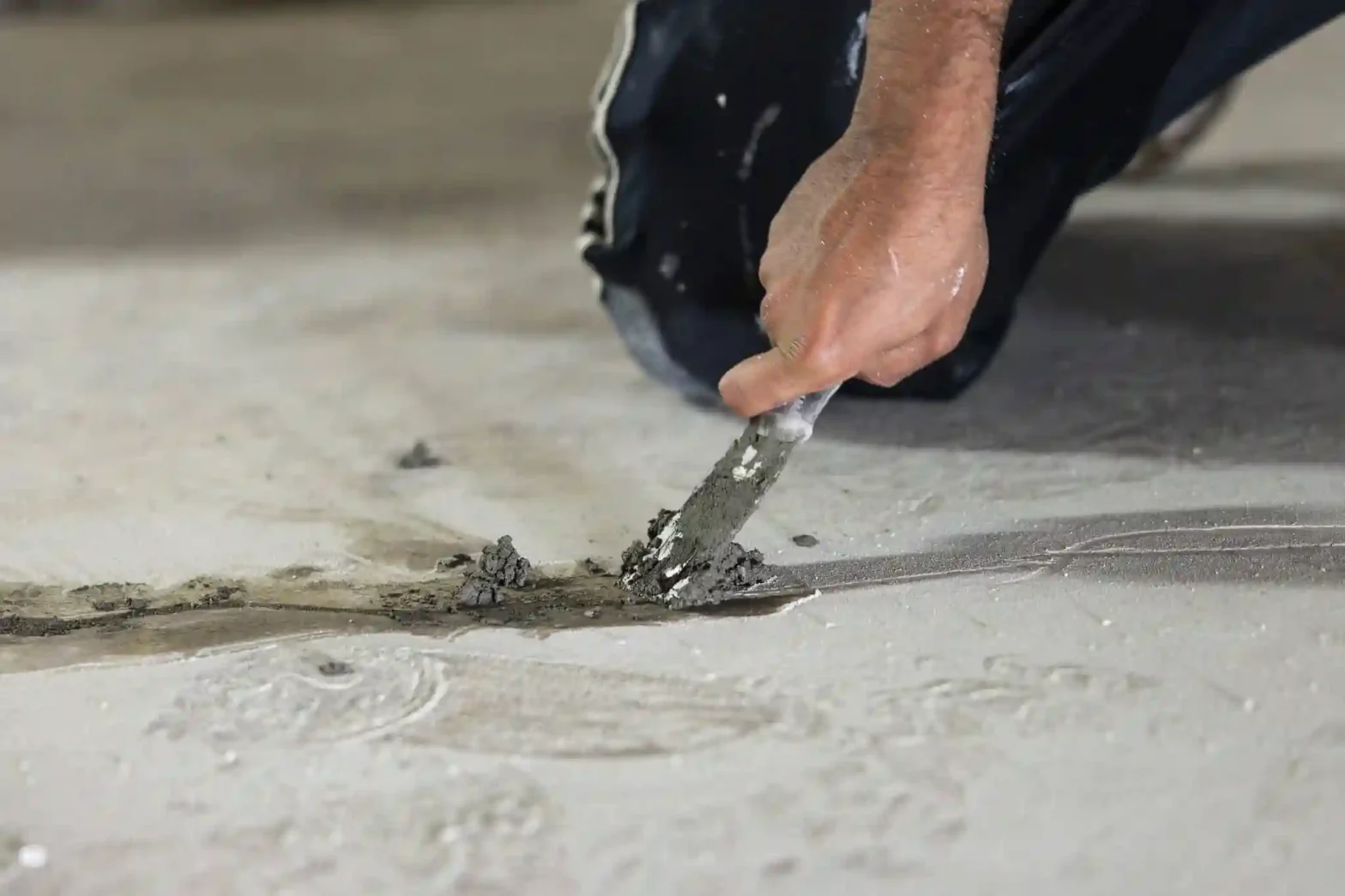Can a Slab Leak Collapse Your Foundation? Risks, Repair & Prevention.
Picture this: You stroll into your kitchen one day and notice a warm patch on the floor. Or maybe you’re sitting in the living room on a quiet evening and hear a slight whooshing sound. Or your water bill comes, and it’s significantly higher than usual, with no clear reason why.
When pipes under your home’s concrete slab fail, a leak remains hidden from plain view, at least initially. Because the plumbing sits below several inches of concrete, many owners naturally wonder how much damage an undetected slab leak can do. Just how much water can seep away before things get serious? Could a slab leak even collapse the foundation? The short answer is yes, but full structural failure is rare and usually takes time. Understanding the risks, the repair timeline, and implementing some simple prevention strategies helps keep a worrying mystery from turning into an expensive crisis.
How a Slab Leak Destroys a Foundation
Water follows the pull of gravity, so a pinhole in a supply line will slowly soak the soil directly beneath your home’s foundation. Sandy soils wash away, leaving voids where support once existed. Clay soils expand when wet and contract when dry, swelling, shrinking, and applying upward and downward pressure on the slab. Over time, that repeated motion weakens the concrete. Hairline cracks widen and spread, tiles pop loose, and plaster walls develop diagonal fractures around door frames. While one crack is seldom the end of the world, several shifting areas can slowly weaken the slab’s structural integrity, letting parts of it settle unevenly or collapse.
Secondary Structural Risks
Unceasing moisture also encourages wood rot in framing members that sit on or abut the slab, weakens carpet tack strips, and rusts steel rebar embedded in the concrete mix. As rebar rusts, it actually expands, popping the concrete around it and further reducing strength. These problems can sometimes turn a localized pipe failure into a more general foundation issue if a leak persists.
Slab Leak Repair Timeline
Most homeowners assume the plumber has to bust up the floor with jackhammers, so the process takes weeks and drives them crazy. In truth, modern techniques focus on efficiency. Every home is different, and so is every leak, but most slab repair jobs follow a predictable path.
Day 1: Confirmation and Leak Location: The plumber performs a diagnostic process of pressure tests, acoustic listening, and thermal imaging to confirm the leak and mark its precise location. In many cases, the technician will also run a camera through the accessible parts of the pipe network to verify the source. This diagnostic phase takes two to four hours at most.
Day 2: Access and Repair: Technicians cut a small trench in the slab at the marked location to repair a direct-access failure. Usually, the hole is no larger than two square feet. The water is shut off, the bad pipe section is removed, and new pipe is soldered or crimped in place. After pressure testing and dry, a concrete patch fills the access point and cures overnight.
Day 3–5: Dry-Out and Monitoring: Industrial fans and dehumidifiers run to dry out the soil and flooring around the repair. Moisture meters are used to ensure readings return to normal. In extreme cases, a structural engineer may also inspect the most severe cracks during this window to determine whether other foundation stabilization work, such as pier installation or soil injection, is necessary.
Week 2 and Onward: Restoration: Tile, hardwood, or carpeting that had to be removed is reinstalled. If the engineer orders slab anchoring or mud-jacking, that work can take place after the moisture is under control. In many cases, the entire process, from first phone call to new flooring, can wrap in two weeks or less, provided the homeowner acts quickly after the first symptoms appear.
Slab Leak Prevention Strategies
The best way to prevent a plumbing issue from turning into a structural crisis is to stop leaks before they start:
Maintain Proper Water Pressure: City water pressure isn’t always consistent. Install a pressure-reducing valve and keep pressure within the 50- to 70-psi range. Higher pressure causes metal to fatigue faster and can lead to pinhole leaks.
Soften Hard Water: Hard, mineral-heavy water robs copper of protective oxidation from the inside out, especially at hot-water bends. Install a whole-house water softener or scale reducer to slow corrosion and lengthen pipe life.
Install a Thermal Expansion Tank: All water contains some thermal expansion. When it heats, that pressure spikes inside closed systems, making the slab’s hidden hot-water line more vulnerable to repeated stress. A thermal expansion tank absorbs the extra pressure, protecting the plumbing.
Schedule Annual Plumbing Inspections: Yearly visits from a professional give a trained leak detection expert a chance to spot corroded fittings, test water pressure, and sample water for copper content, early-warning indicators that help prevent an under-slab leak from developing.
Install Smart Leak Detectors: Battery-operated sensors placed under sinks, near the water heater, and above likely slab-leak areas in the home can send phone alerts as soon as they detect moisture. Some can even be set up to activate a smart shut-off valve, turning off the water supply automatically.
When is Collapse a Real Concern?
A total foundation damage requires a confluence of events: a high-volume leak left alone for months or even years, highly erodible soil, and heavy structural loading on the weakened area. Most homes have some extra soil around the foundation and loads that balance or exceed code requirements, so total loss is uncommon.
Luckily, most homeowners spot higher water bills, warm flooring, or musty smells long before that point. If you catch a slab leak early, even large cracks seldom require total slab replacement. Repair costs may still run high, but they’re almost always much lower than the expense of jacking a home up to rebuild the foundation.
Key Takeaways for a Wary Audience
Slab leaks can be sneaky and dangerous, but they are manageable when you catch them quickly. Soil erosion, shifting concrete, and moisture can all work together to undermine a home’s structural integrity, but collapse is entirely preventable if you stay vigilant and act. An expert can map a leak, a targeted repair will stop water loss, and careful dry-out will ensure the slab stays strong. Pressure control, water treatment, and smart monitoring can lower future risks.
Keeping Your Home on Solid Ground
If it’s out of sight, it should never stay out of mind. Recognize the early warning signs of a slab leak and take action quickly. Catching small plumbing issues before they escalate will protect your investment from a major structural headache. Contact Calis Choice today for a thorough inspection and expert plumbing solutions that keep your foundation and your family secure.
Frequently Asked Questions
- How can I confirm that a warm floor spot is really a slab leak?
Turn off every faucet and appliance, note the water-meter reading, and watch the leak indicator. If it still spins, call a plumber for acoustic listening or thermal imaging to pinpoint an under-slab break. - Does homeowners’ insurance pay for slab-leak repairs and foundation damage?
Most policies cover sudden pipe failures that damage the structure but exclude the cost of repairing the plumbing itself. Always document moisture readings and photos; then ask your insurer about coverage for water mitigation and slab stabilization. - How quickly should I act once I suspect a slab leak?
Immediately shut off the main valve, schedule an inspection within 24 hours, and start drying visible moisture. Waiting even a week can enlarge cracks, raise repair costs, and increase the chance of mold growth under the flooring. - What is the typical price range for slab-leak repair and foundation reinforcement?
A direct-access pipe fix often runs $1,500–$3,000. Add $3,000–$10,000 if soil erosion requires piers or mud-jacking. Early detection keeps you on the lower end of that spectrum. - Will re-routing pipes above the slab prevent future leaks?
Rerouting eliminates vulnerable under-slab lines, drastically reducing repeat leaks. New PEX or copper lines run through walls or attic spaces and carry warranties up to 25 years, making them a long-term safeguard against future slab trouble.


